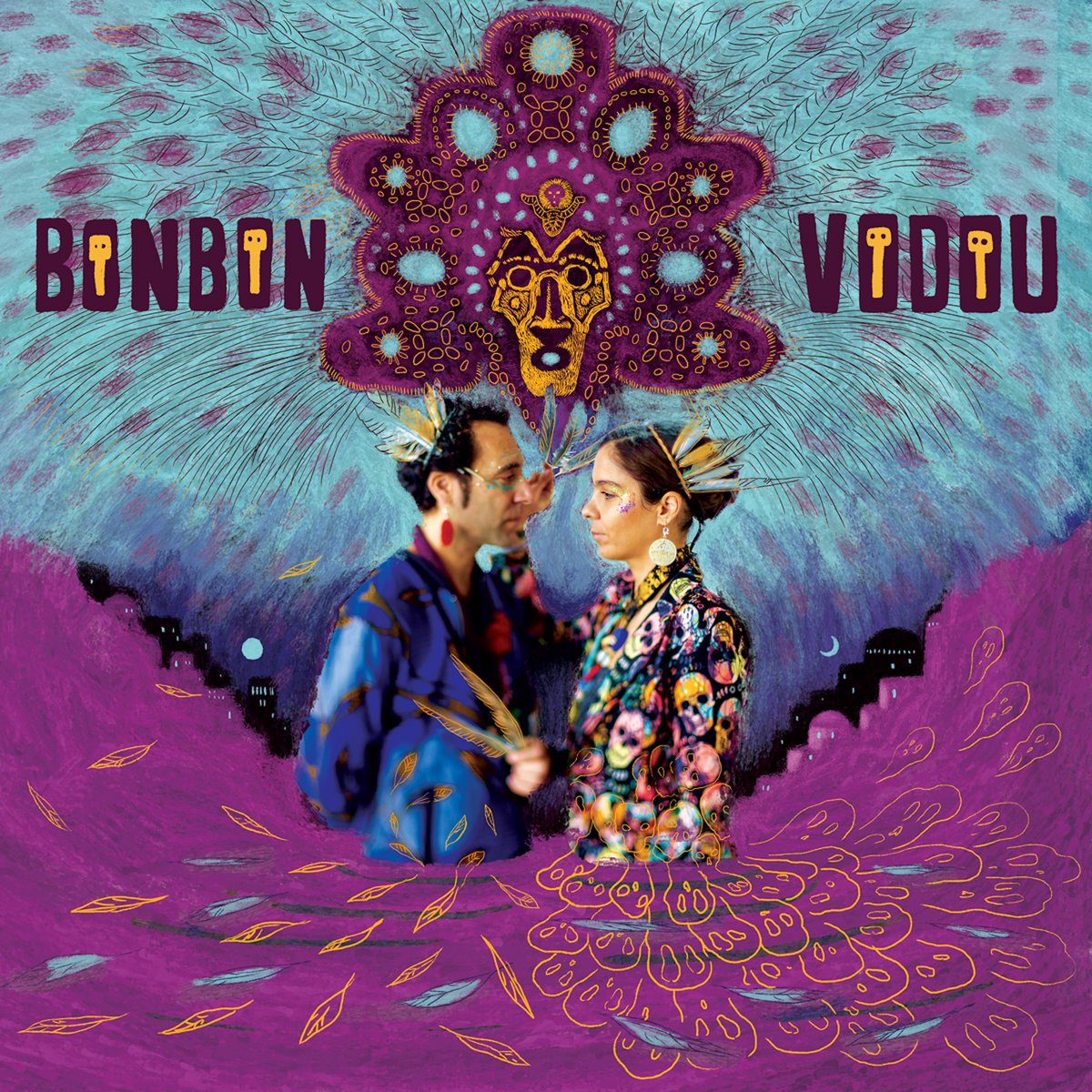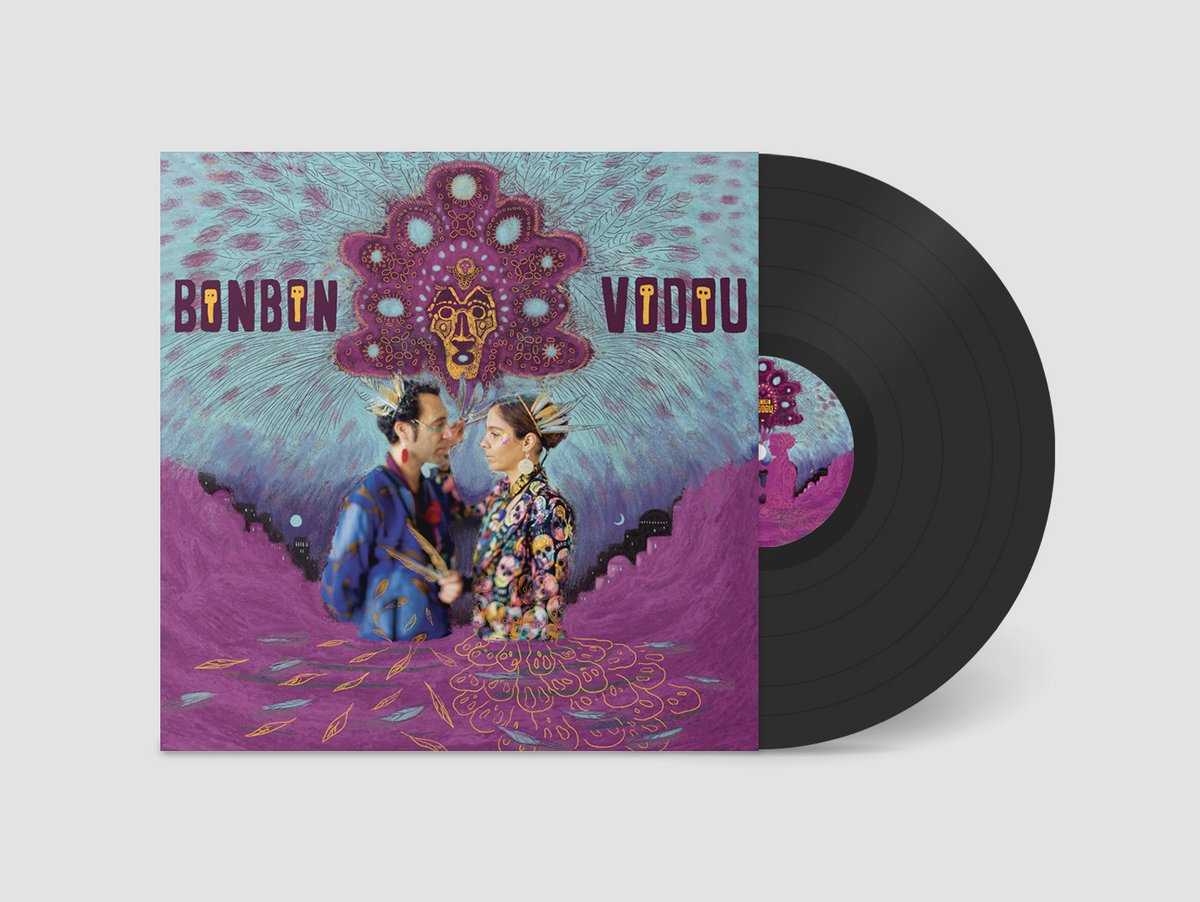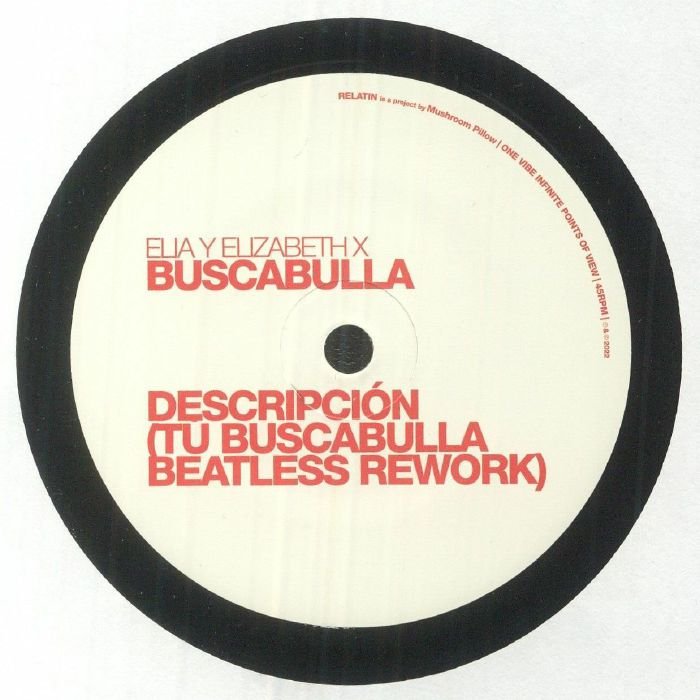Bonbon Vodou. Afrodiziak.
Label: Heavenly Sweetness – HS257VI
Format: Vinyl, 12", Mini-Album
Country: France
Released: 21 Jun 2024
World, Maloya (French Reunion)
Label: Heavenly Sweetness – HS257VI
Format: Vinyl, 12", Mini-Album
Country: France
Released: 21 Jun 2024
World, Maloya (French Reunion)
Label: Heavenly Sweetness – HS257VI
Format: Vinyl, 12", Mini-Album
Country: France
Released: 21 Jun 2024
World, Maloya (French Reunion)
Direct heir to the fusions of Maloya rhythms from Réunion Island, like Alain Peters, Danyel Waro, René Lacaille... Bonbon Vodou is the sweet and sour confectionery concocted by Oriane Lacaille and JereM Boucris. Bathed in the sweetness of clear voices and carried by a devastating groove, Bonbon Vodou distills joy and propagates a trance wave. Bonbon Vodou renews in French and Reunion Creole the melodic-fantastic marriage of grouple (couple group) Areski B./B. Fountain. On her unique mini-drums, Oriane makes bodies shake to the pulsations of Réunion Island. JereM, with his oil can body guitar and North African reminiscences, hybridizes these rhythms of heady melodies. The creoleness of Bonbon Vodou is expressed in a bonfire, which summons Brassens in choir as well as the explosive ternary rhythm of the Indian Ocean. Bonbon Vodou as a quintet explores even more deeply maloya and the mosaic of swaying and telluric rhythms gleaned from the four cardinal points.
Come and taste the new bonbon (treat) Afrodiziak in 4 titles
Oriane Lacaille : Percussions, chant
JereM Boucris : Guitares, ukulélé, clavier, chant
Juliette Minvielle : Percussions, chant
Roland Seilhes : Saxophone, clarinette, chant
Yann-Lou Bertrand : Basse, contrebasse, flute, trompette, chant
Guillaume Leray : composition de la chorale et chef de choeur
Maloya Music Description
Maloya is, along with sega, one of the two major musical genres of Reunion. It is a type of music, song and dance all at the same time.
As a Creolized practice sung in Réunion Creole, it is the heir to the musical practices brought to the island by the slaves. If other instruments can be added to it, the roulèr is preponderant for the maloya as it is defined today. Traditional instruments such as kayamb, pikèr, sati or bobre are also common and remain the basis of traditional maloya. After being included in the Inventory of Intangible Cultural Heritage in France, this musical practice has been classified, by UNESCO and since October 1, 2009, as the Intangible Cultural Heritage of Humanity. A historical and cultural role: Music resulting from the suffering and the enslavement of men by men, not content with conveying a musical tradition, the maloya also tends, through the names of the groups, to revive a fact relating to a historical figure unknown to the general public. or a historic place such as the Simangavol group, whose name refers to the first female slave to arrive on the island and who, refusing slavery despite the risks involved, preferred to flee to the mountains in order to regain freedom. Maloya is representative of the people of Reunion, who play and dance it, mixed, and open to the world. He is the spearhead of the Kabars during the feast of December 20, the date commemorating the abolition of slavery on the island in 1848, promulgated by Joseph Napoleon Sébastien Sarda Garriga. It is a bit, for the Reunionese, what the blues is for the Americans. It can thus express nostalgia, but also the joy of living, freedom.













